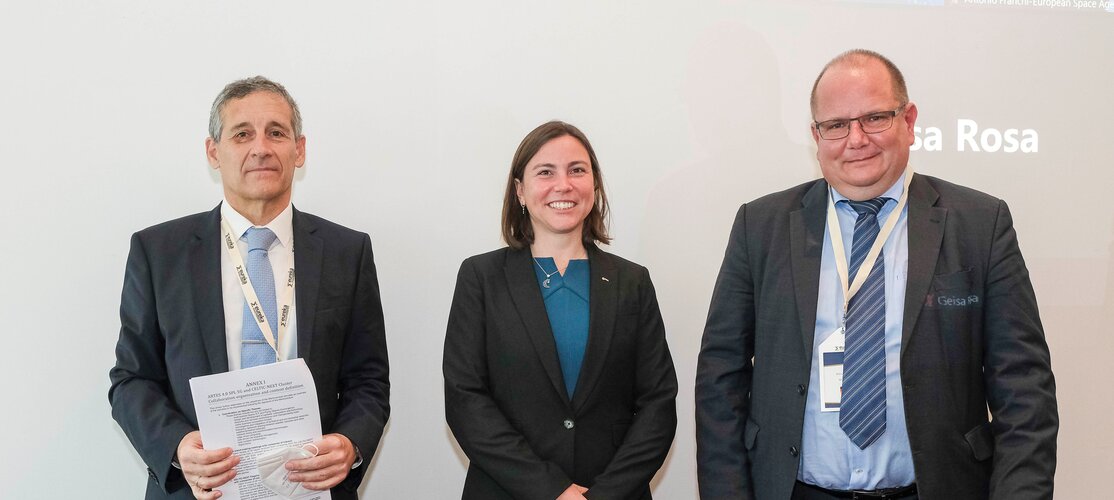Elodie Viau, Director of Telecommunications and Integrated Applications at ESA, said: “Satellites play a crucial role in enabling seamless and ubiquitous connectivity to support the digital transformation, enabling new carbon-neutral applications and services, and fuelling the lucrative 5G and 6G economy.
“We will explore novel 5G and 6G technologies for the design and development of holistically integrated space and terrestrial networks. We are seeking collaborative opportunities between space and terrestrial ICT companies, and industries such as autonomous transportation for sea, land and air, as well as public safety and healthcare, to increase European strategic autonomy and add value for all stakeholders, while contributing to sustainable development goals.”
Manuel Heitor, Minister for Science, Technology and Higher Education in the Portuguese Government, said: “We all should do an additional effort to ‘make space for Europe’ in a way to guarantee that European citizens become an integral part of future space developments in Europe.
“This means to save lives, predict natural disasters, prevent fires, control coastal areas, as well as dealing with climate change, uncertainty and risks, secure and resilient communications and satellite navigations services, together with ensuring security and safe conditions for our populations. And this can only be addressed if space initiatives in Europe move forward in alignment with the emerging opportunities of the digitalisation of our societies, together with the new forms to effectively address the challenges of green transition.”
Miguel Bello Mora, Chairman of Eureka, said: “Space activity emerges as a fundamental component that has more and more presence in the day-to-day of our lives. Today we cannot imagine a world without satellites, which interact with us with a frequency that goes unnoticed, when we see the weather forecasts, when we drive a vehicle guided by Galileo or GPS or when we communicate or receive television at home. This agreement shall support companies to develop new products and services for citizens.”
David Kennedy, Chairman of Celtic-Next, said: “For a long time we have been concerned that the space ICT dimension of the future communications scenarios has been assessed and planned as a separate service. With this agreement, we plan to bring our ICT communities together to boost innovation for services that fully integrate the space ICT capabilities from their conception. This initiative will foster the development of next-generation pervasive end-to-end communications and services for different industries in a holistic way towards a sustainable inclusive digital society based on security and trust.”



